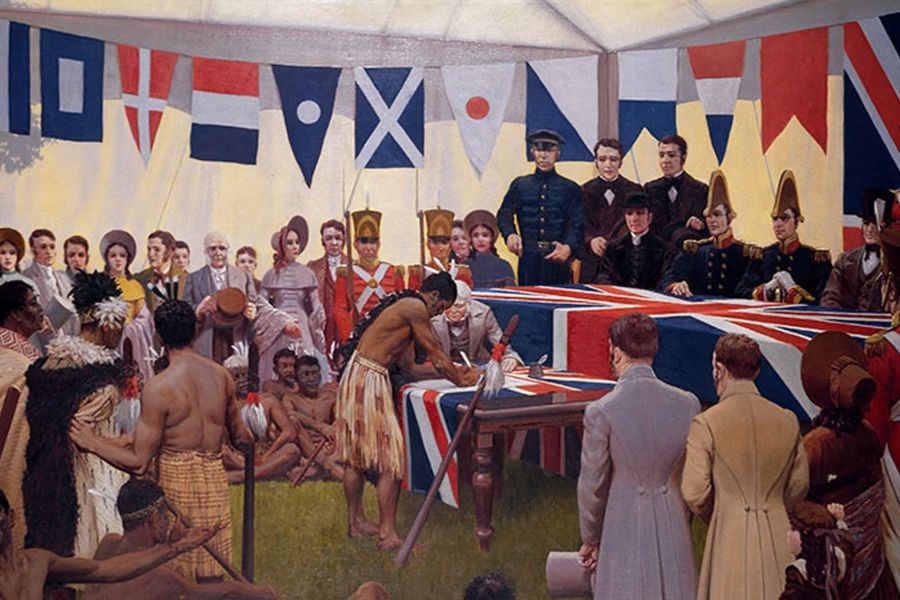New Zealand's cultural landscape is deeply enriched by the traditions and heritage of the Māori, the indigenous people of Aotearoa. As the world becomes increasingly interconnected, understanding the intricate aspects of Māori culture is not only a matter of cultural appreciation but also of economic significance. Māori culture influences various sectors, including tourism, education, and business, making it a vital component of New Zealand's economic fabric.
Understanding the Economic Impact of Māori Culture
Did you know that Māori culture contributes significantly to New Zealand's economy? According to a report by the Reserve Bank of New Zealand, tourism alone contributes nearly NZD 40 billion annually to the economy, with Māori cultural experiences being a major draw for international visitors. This highlights the cultural capital that Māori traditions hold in the global tourism marketplace.
Moreover, Māori businesses, or "Māori enterprises," are thriving, contributing to sectors like agriculture, fisheries, and renewable energy. The Ministry of Business, Innovation and Employment (MBIE) indicates that Māori enterprises are increasingly participating in innovative sectors, thus diversifying New Zealand’s economic portfolio.
Māori Language: A Resilient Cultural Asset
The Māori language, or Te Reo Māori, serves as a symbol of cultural resilience and identity. Recognized as one of New Zealand's official languages, it is more than a means of communication; it is a repository of cultural knowledge and values. With initiatives such as the Māori Language Act and Te Taura Whiri i te Reo Māori (the Māori Language Commission), efforts to revitalize and promote the language have seen success, with a steady increase in speakers over the years.
New Zealand is globally known for its stunning landscapes, but one of its most profound treasures is Māori culture—a rich, living tradition shaped by navigation, storytelling, resilience, and spirituality.
From spiritual concepts that rival quantum physics to social structures that could transform modern business, here are 15 mind-blowing facts about Māori culture that might just change how you see Aotearoa.
1. Māori Navigators Crossed the Pacific Without Modern Tools
Long before GPS or compasses, Māori ancestors sailed thousands of kilometres across the Pacific using stars, ocean swells, cloud patterns, and birds. Their knowledge rivalled today’s most advanced navigation systems.
🌊 They found Aotearoa with nothing but wits, stars, and waka.
2. Te Reo Māori Was Once Nearly Lost—Now It’s Thriving
By the 1980s, fewer than 20% of Māori children spoke their native language. But thanks to Kōhanga Reo (language nests) and decades of activism, Te Reo Māori is growing again, with government support and even entire TV channels in the language.
3. Whakapapa Connects You to the Stars
Whakapapa (genealogy) isn’t just about ancestry—it’s a spiritual connection between people, land, and cosmos. In Māori thinking, you are descended from stars, gods, mountains, and rivers.
✨ You don’t just live on the land—you are the land.
4. A Single Word Can Mean Many Things
Take "Aroha"—often translated as "love." But it also includes compassion, empathy, concern, and even grief. Māori language captures depths of emotion and philosophy often lost in English.
5. The Haka Isn’t Just About War
While some haka were used in battle, others celebrate birth, mourn death, or welcome guests. There are dozens of haka types, each with unique meanings and occasions.
🕊️ Yes, haka can make you cry.
6. Māori Concepts Are Reshaping New Zealand Business
Terms like mana, whanaungatanga (relationships), and mauri (life force) are now entering boardrooms and business strategies—bringing a values-based, community-first model into the mainstream.
7. Moko (Tā Moko) Is a Sacred Biography
Facial tattoos aren’t decoration—they’re a spiritual statement of identity, lineage, and life journey. Each design is unique to the wearer and reflects their role and connection to community.
8. The Māori Creation Story Starts With Darkness and Separation
According to Māori cosmology, the world began in darkness (Te Pō), and life was born when Ranginui (sky father) and Papatūānuku (earth mother) were separated by their children—sparking light, conflict, and life as we know it.
9. Māori Have a Word for the Vital Energy of Everything
Mauri is the life essence that exists in people, animals, rivers, forests—even buildings. Maintaining mauri is key to health, harmony, and sustainability.
🌱 It’s ecology, psychology, and spirituality rolled into one.
10. Māori Architecture Reflects Genealogy
Marae aren’t just meeting places—they’re symbolic ancestors. The ridgepole represents the spine, rafters the ribs, and the whole structure embodies a living whakapapa.
11. Waiata (Songs) Are Oral Libraries
Every waiata preserves historical events, emotions, values, and whakapapa. It’s one reason oral storytelling still flourishes—because every song is a record.
12. Māori Land Connection Isn’t Ownership—It’s Kaitiakitanga
Māori don’t believe in “owning” land. Instead, they practise kaitiakitanga, or guardianship—caring for land, sea, and sky as ancestors entrusted to future generations.
13. Traditional Māori Healing Combines Nature and Energy
Rongoā Māori includes herbal remedies, spiritual healing, and massage (mirimiri). Today, it’s being revived in health centres and integrated into holistic care systems.
14. Some Rivers Have Legal Personhood
Thanks to Māori-led efforts, the Whanganui River is legally a person under New Zealand law—recognising its spiritual and ancestral status to the iwi who care for it.
🏞️ It’s not just water—it’s your ancestor.
15. You Don’t Need to Be Māori to Honour the Culture
Respecting tikanga (customs), learning Te Reo phrases, and attending festivals like Matariki or Te Matatini are powerful ways to support and share in the revival of Māori culture.
🤝 Aotearoa becomes richer when everyone leans into its indigenous roots.
🎯 Avoiding the Mistakes Others Already Made
Common Misunderstandings:
❌ Assuming Māori culture is “one size fits all” across iwi
❌ Treating haka or moko as costumes without meaning
❌ Thinking Māori concepts can be copied without deep understanding
❌ Speaking about Māori in the past tense—this is a living culture
Tactical Lessons:
✅ Learn basic Te Reo Māori phrases and use them with respect
✅ Approach Māori knowledge with curiosity and humility
✅ Attend marae events and festivals as a learner, not a tourist
✅ Support kaupapa Māori creators and businesses
✅ Understand your role in the Treaty relationship as a New Zealander or guest
Case Study: Ngāi Tahu - A Model for Economic Empowerment
Problem:
Ngāi Tahu, one of the largest iwi (tribes) in New Zealand, faced historical challenges of land dispossession and economic marginalization. These issues hindered their economic growth and sustainability.
Action:
Following a historic settlement with the Crown in 1998, Ngāi Tahu invested the settlement funds strategically into diversified ventures, including tourism, property, and aquaculture. They established Ngāi Tahu Holdings, focusing on sustainable growth and reinvestment into the iwi’s social and cultural initiatives.
Result:
- Revenue Growth: From a NZD 170 million settlement, Ngāi Tahu Holdings has grown its asset base to over NZD 1.5 billion.
- Job Creation: The investments have created numerous jobs for the Māori community, emphasizing capacity building and skill development.
- Community Development: Profits are reinvested into education, cultural preservation, and health initiatives, fostering community well-being.
Takeaway:
The success of Ngāi Tahu demonstrates the potential for Māori enterprises to drive economic growth while reinforcing cultural values. Businesses in New Zealand can learn from Ngāi Tahu’s approach to balance commercial success with community development.
Myth Busting: Common Misconceptions About Māori Culture
Māori culture is often misunderstood or oversimplified. Here are some myths and the reality behind them:
- Myth: Māori culture is static and unchanging. Reality: Māori culture is dynamic and adaptable, continuously evolving while maintaining traditional values.
- Myth: The Treaty of Waitangi is solely a historical document. Reality: The Treaty remains a living document, guiding modern legal and social frameworks in New Zealand.
- Myth: Māori traditions are incompatible with modern business. Reality: Many Māori businesses successfully integrate traditional values with contemporary business practices, contributing to a unique and sustainable business model.
Data-Driven Insights: The Role of Māori Enterprises
According to Stats NZ, Māori enterprises contribute approximately NZD 28 billion to the economy annually. This contribution is not limited to traditional sectors but extends to emerging industries like digital technology and sustainable energy. For instance, the Māori economy's growth rate consistently outpaces the national average, underscoring the potential for further integration and development.
Emerging Trends and Future Projections
Looking ahead, the Māori economy is poised for substantial growth, driven by strategic investments and a focus on sustainability. The Reserve Bank of New Zealand forecasts that by 2030, Māori enterprises will play a crucial role in achieving New Zealand’s renewable energy targets, contributing significantly to the transition towards a green economy.
Pros and Cons of Māori Cultural Integration in Business
Pros:
- Enhanced Brand Identity: Incorporating Māori culture into business practices enriches brand narratives and appeals to a global audience.
- Sustainable Practices: Māori values emphasize sustainability, aligning with global trends towards eco-friendly business operations.
- Community Engagement: Businesses that integrate Māori culture often experience stronger community ties and support.
Cons:
- Cultural Sensitivity: Misappropriation or misunderstanding of cultural elements can lead to backlash and reputational damage.
- Regulatory Challenges: Navigating legal frameworks related to cultural heritage can be complex.
- Resource Allocation: Ensuring that cultural integration does not impede financial performance requires careful planning and resource management.
Conclusion: Embracing Māori Culture for Economic Growth
Māori culture is not only an integral part of New Zealand's identity but also a catalyst for economic growth. By embracing Māori values, languages, and enterprises, New Zealand can foster a more inclusive and prosperous economy. As the world shifts towards sustainable and culturally enriched business practices, New Zealand is uniquely positioned to lead by example.
Are you ready to explore the potential of Māori culture in your business? Share your thoughts and join the conversation below!
People Also Ask
- How does Māori culture impact New Zealand's economy? Māori culture significantly influences tourism and business sectors, contributing billions to the economy through unique cultural experiences and enterprises.
- What are the benefits of integrating Māori culture into business? Integrating Māori culture enhances brand identity, promotes sustainability, and strengthens community engagement, aligning with global business trends.
- What is the role of Māori enterprises in New Zealand? Māori enterprises contribute NZD 28 billion annually, with a focus on sustainability and innovation, driving economic growth beyond traditional sectors.
Related Search Queries
- Māori culture significance in New Zealand
- Māori economy contributions
- Impact of Māori enterprises on NZ economy
- Integrating Māori culture in business
- Māori cultural tourism in New Zealand
Suggested Long-Tail Keywords for SEO
Amazing facts about Māori culture
Māori spiritual concepts explained
Māori worldview and values
What is mauri and mana in Māori culture
Māori creation stories
Whakapapa and Te Ao Māori
Kaitiakitanga and Māori land values
Māori festivals and language revival
Māori healing and Rongoā medicine
































ManuelBrim
9 months ago